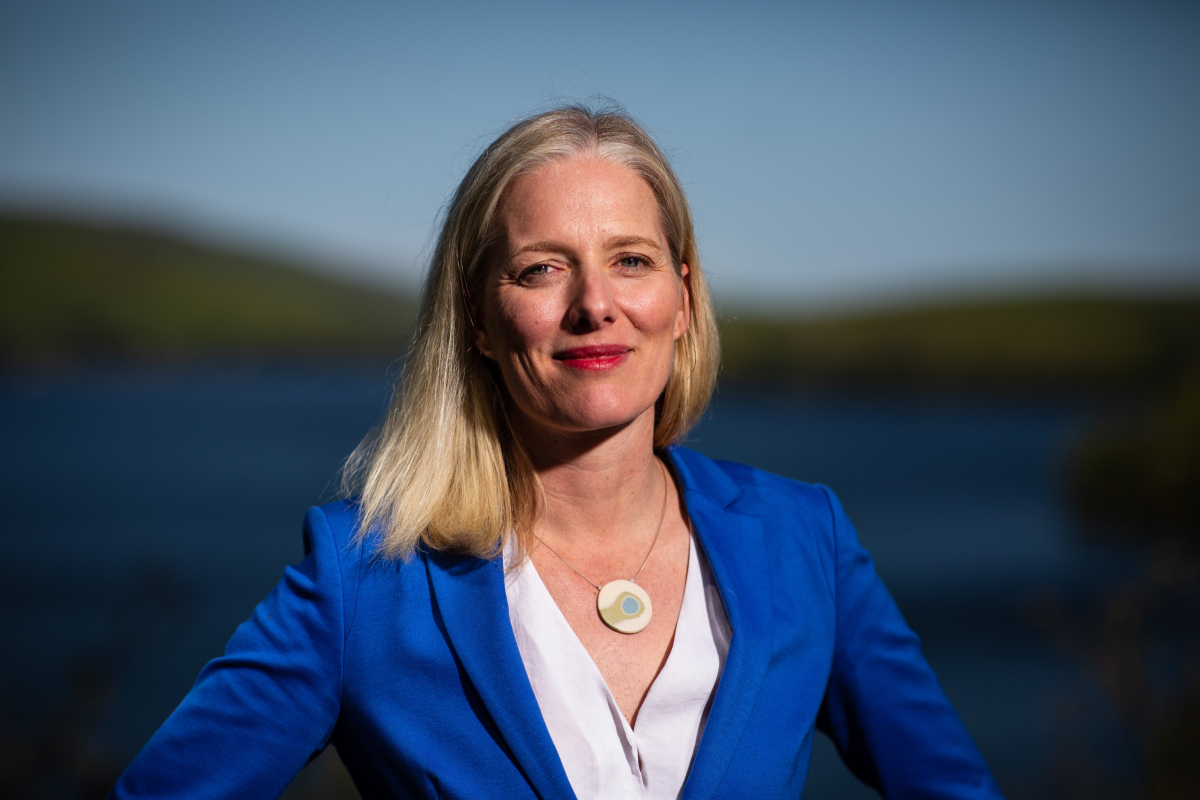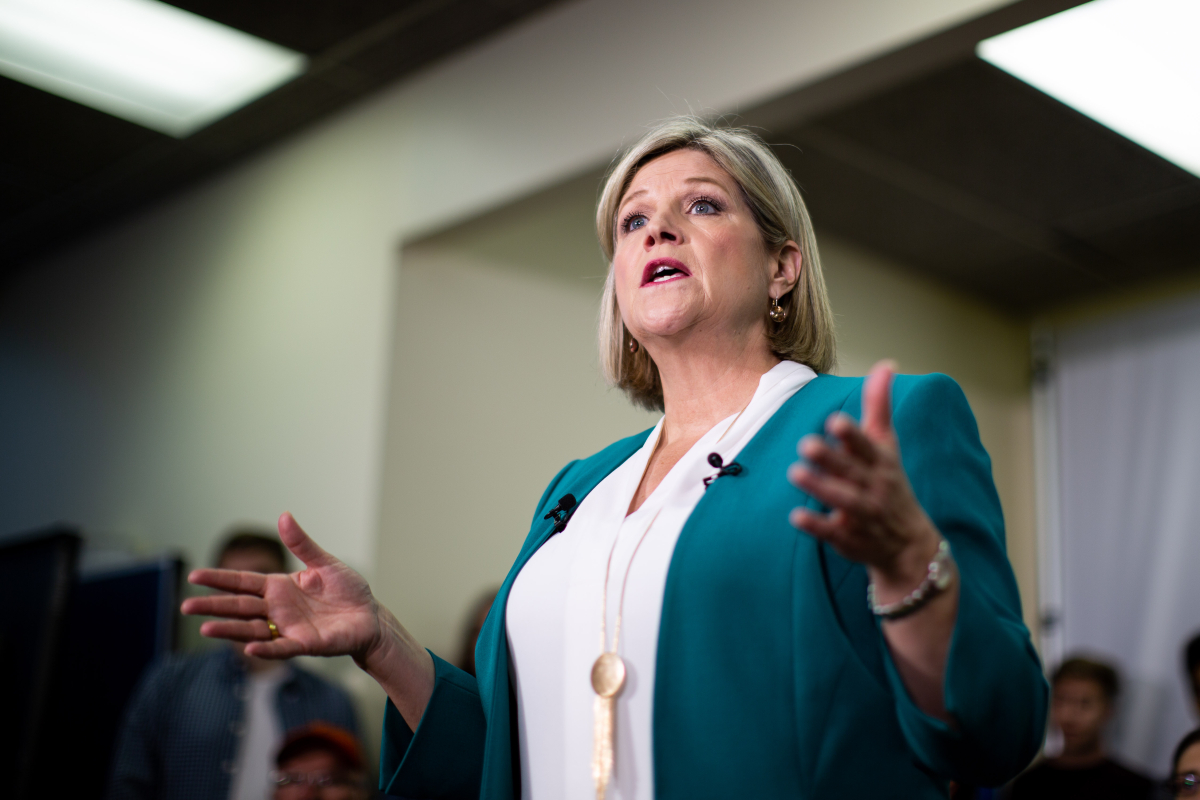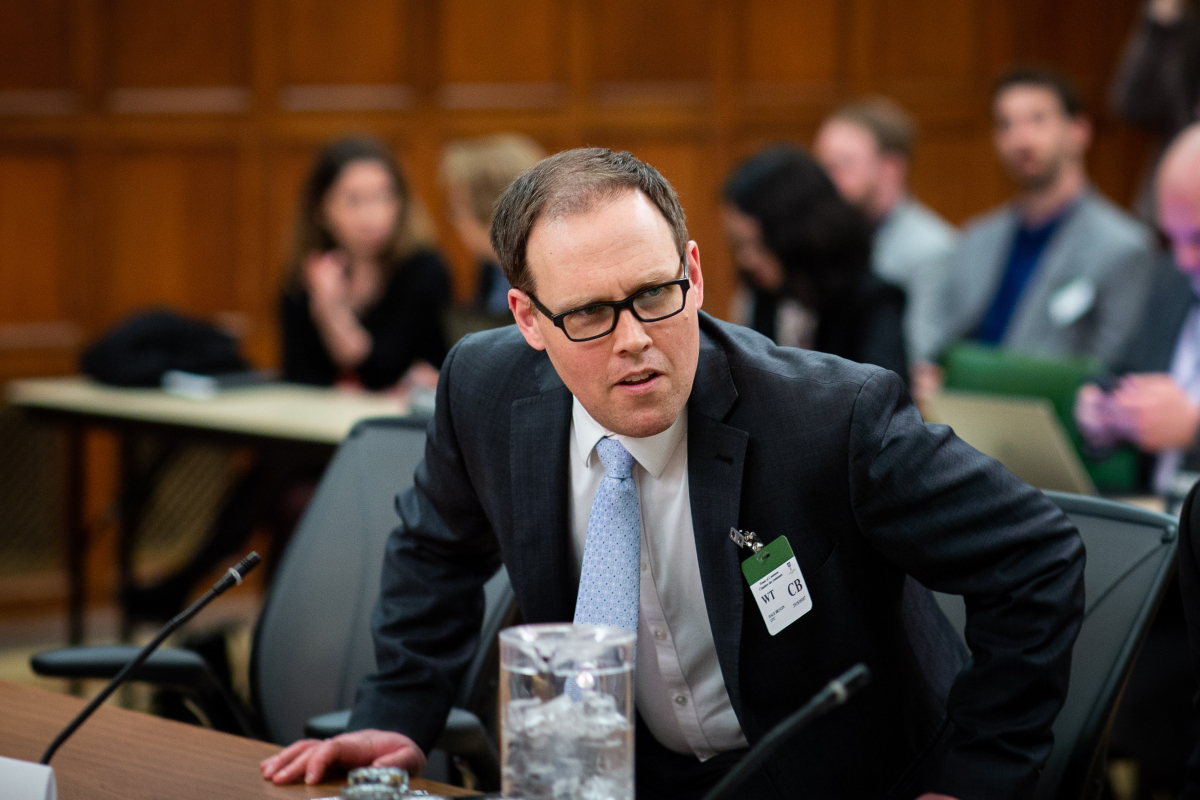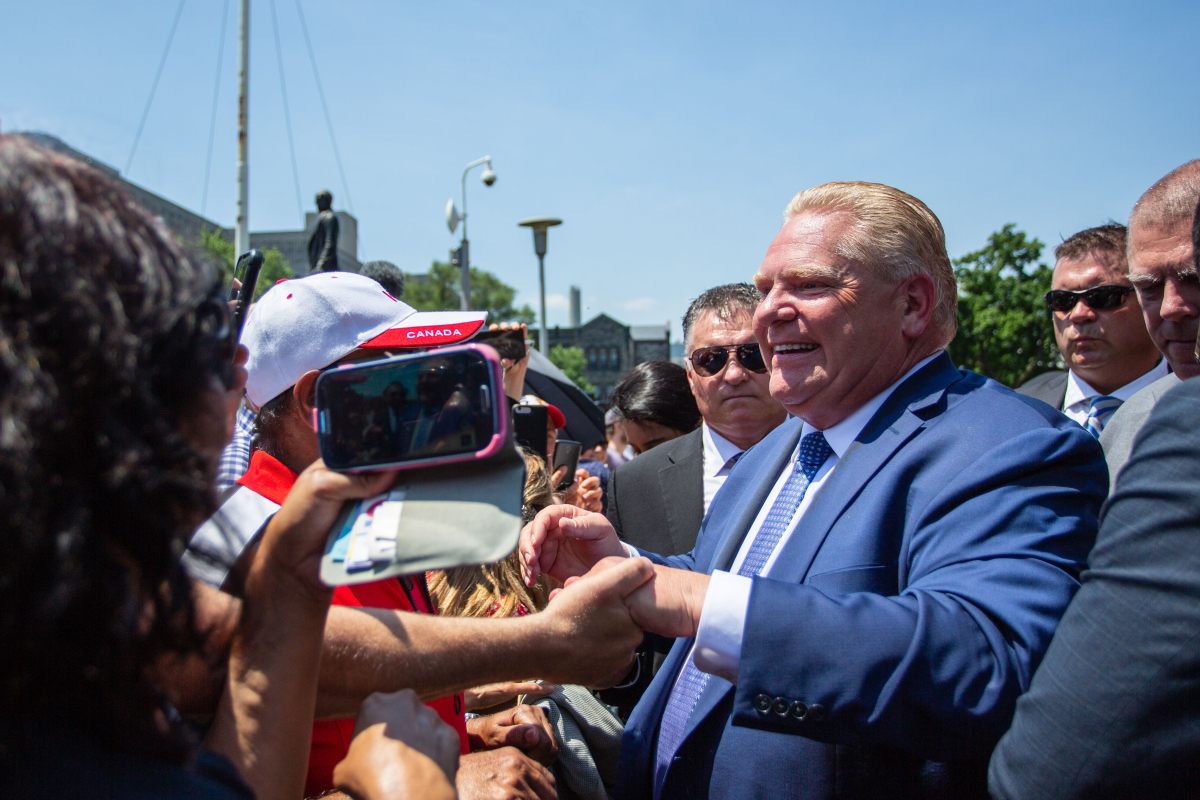Support strong Canadian climate journalism for 2025
Prime Minister Justin Trudeau's government says it's reviewing $420 million worth of transfer payments to Ontario after newly-minted Premier Doug Ford announced Canada's most populous province was beginning an "orderly wind-down" of its green programs.
The federal funding was part of the Trudeau government's Low Carbon Economy Fund, set up as part of the prime minister's national climate change framework. The fund is worth $2 billion over five years and to be spent on projects that reduce emissions, create jobs and help Canadians and companies save money across the country.
The federal government has offered the funding to provinces that ensure that polluters are paying a minimum price for their carbon emissions. Previously, the Trudeau government had accepted that the Ontario government could meet this standard through its participation, under former premier Kathleen Wynne, in a joint cap and trade system with Quebec and California.
This changed after Ford's Progressive Conservative party swept to power in Ontario's June 7 election and followed through on a campaign promise to abandon the cap and trade market, which allows companies to buy and sell pollution allowances in order to remain under a cap set by the government.
“By cancelling Ontario’s cap-and-trade plan, the Ontario government is making it clear that it is not taking climate action, and is effectively withdrawing from Canada’s national climate change plan without a plan of their own,” Environment and Climate Change Minister Catherine McKenna told National Observer in a statement.
“We are evaluating what this decision means for the portion of federal funds that supported GreenON programs and Ontario’s funding under the Low Carbon Economy Fund. We will continue to work with the people of Ontario to tackle climate change, invest in clean growth, and create good middle class jobs. That is what Canadians expect and what we intend to deliver."
McKenna's office confirmed on Wednesday that Ontario had not yet received any of its share of the Low Carbon Economy Fund.

Ford incorrectly described cap and trade as a tax
Within the province, the former Wynne government set up the Green Ontario Fund — GreenOn — with the revenues raised by selling permits to be used in the cap and trade system. The fund was then used to finance multiple programs to help consumers and businesses save energy and money through rebates for green renovations and upgrades.
While rejecting cap and trade and promising to fight Trudeau's efforts to impose carbon pricing, Ford’s Progressive Conservatives promised in their campaign platform to spend $500 million over the course of their four-year mandate on a range of environmental protection and clean energy measures, including an “emissions-reduction fund to invest in new technologies to reduce emissions right here in Ontario.”
Part of the $500 million would also be spent on improving enforcement of environmental rules by hiring more conservation officers to increase policing of major polluters, the Tory platform said.
Ford, who was sworn in on June 29, announced Tuesday that he was officially pulling Ontario out of the carbon trading market shared with Quebec and California, as part of a plan to dismantle Wynne's green policies through an "orderly wind-down."
The Ford government also announced it was cancelling a regulation that it said "punishes Ontario residents at the gas pump."
The cap and trade system is an international market where emitting companies can buy and sell pollution allowances in a given four-year period. This allows the greener companies to profit and grow, while providing a financial incentive for others to improve their environmental performance.
During the last provincial election campaign, Ford used some different language to describe the market, describing it as a tax. He repeated this message on Tuesday.
"I promised that the party with taxpayers' dollars was over and that this would include scrapping the cap-and-trade carbon tax slush fund. Today we are keeping that promise,” said Ford in an official government news release.

Cap and trade pull out could cost Ontario up to $4 billion
Quebec and California already announced they would stop trading with Ontario, one of the first fallouts of a policy shift some experts project could cost the province up to $4 billion.
Ford’s statement explained that the dissolution of cap and trade will not interfere with pre-existing contracts for items like energy efficient insulation and window retrofits. He said the government would evaluate other green programs and make decisions on which ones to keep following an upcoming value-for-money audit.
The premier's statement did not address liabilities the province could face by pulling out of the carbon market before the end of the compliance period.
"We are getting Ontario out of the carbon tax business," Ford added in the statement. "Our focus will be to give people lower gas prices, lower energy bills and a real break in their wallets in order to get our economy going and create jobs. Help is here."
Reacting to Ford’s first major environmental policy announcement, Peter Tabuns, NDP MPP for Toronto-Danforth, said he was very upset to hear Tuesday’s news.
“There is no climate plan on the table coming from the Conservatives. We’ve been hit in Ontario with ice storms; last year with flooding that hit the Toronto Islands,” said the NDP representative in a telephone interview with National Observer.
“We continue to see extreme weather that’s very expensive for Ontario.”
Ontario’s NDP Opposition Leader Andrea Horwath told Ford in a letter last week that she had asked the province’s financial accountability officer to evaluate the costs of the government’s decision to eliminate cap and trade.
”I am concerned that the decision to scrap cap and trade without a replacement won’t just have serious environmental impacts – it could cost Ontario businesses, families, and the province billions of dollars,” the provincial NDP leader wrote in the June 26 letter.

Ontario sold an estimated $2.8 billion in permits to businesses since the introduction of cap and trade at the beginning of 2018.
Each permit was selling for an average price of $18 per tonne on the market, but all of them are now worthless due to Ford’s decision, which prompted California and Quebec to shut Ontario out of the trading system.
This could lead to lawsuits against Ford’s government for making a decision that caused companies to lose their investments, according to Dale Beugin, executive director of Canada’s Ecofiscal Commission, a coalition of economists that promote “practical fiscal solutions” to improve the country’s economy and its environmental performance.
"So there's questions about whether or not the provincial government would have to buy back some of those assets and whether there will be lawsuits pursuing that line of inquiry,” Beugin said in an interview. “That if so, and if successful, would be a really significant stop to the fiscal bottom line for Ontario in a time when the budget's already kind of stressed and already under pressure, given the promises from the new government and the state of the deficit and the state of the budget as it is.”

Ford plan is 'reckless and irresponsible,' says Mike Schreiner
Mike Schreiner, the Ontario Green Party Leader who will be sworn in on Thursday, said in a statement that “cancelling Ontario’s plan to price greenhouse gas pollution without announcing an alternative is reckless and irresponsible,” after urging Ford to consider a carbon fee and dividend program last week.
Ford stated repeatedly throughout the campaign that withdrawing from the carbon sharing market would improve Ontario’s economy and benefit taxpayers. Beugin, from the Ecofiscal Commission, disagrees.
“There’s one thing that industry likes most of all and that is certainty,” explained Beugin. “They, in many cases, would rather have a clear, transparent, certain carbon price than they would a flip flop back and forth between nothing and something.”
Beugin says that what will fill the policy gap left after suspending cap and trade regulations is yet to be seen, but suggests that some of the most plausible alternatives will only cost the province more than the previous system.
“If not carbon pricing, then what?” he asked, suggesting that subsidies or a federal backstop are among the likely changes coming up.
“Ultimately, the climate is changing and there’s going to be increasing pressure to take action and frankly, delay is just going to add to the cost of that action,” he said.
“I don’t think Ontarians or Canadians want to do nothing. They want to contribute to our efforts to fight climate change, and they want to help avoid some of the costly impacts of climate change. So it’s time to be transparent about what it is we’re actually going to do."
Editor's note: This article was updated at 7:30 p.m. on July 3, 2018 with new comments from federal Environment and Climate Change Minister Catherine McKenna and other reaction. It was updated again at 1:30 p.m. on July 4, with additional information confirming that no money from the federal low carbon fund was transferred to Ontario.







Comments
Party like it's 1995
https://en.m.wikipedia.org/wiki/Mike_Harris
Why are we dumbing down?? The cost of this "tax" deception is far bigger than the gas plant scandal. I used to be proud to live in Ontario.
Look at who voted for these guys. The story tells itself.
The one thing Federal Liberal Cabinet Ministers have in common? The look of smug. It doesn't work for me. Hopefully it won't work for many others in October 2019.
So the Ontario government tackles an issue that will keep tax payers money in their own pockets and the federal government claws back transfers. The BC government trys every thing imaginable to stop a federally approved pipe line project that improves the entire Canadian economy and the federal government does nothing. Hypocritical bunch of asses!
So the Ontario government make an insane decision that will put tax payers money into polluting Big Oil's own pockets and the federal government hopefully claws back transfers.
I know this is hard to understand if you look at things in a simplistic fashion. The funding we're talking about is specific, targeted funding. `The federal funding was part of the Trudeau government's Low Carbon Economy Fund, set up as part of the prime minister's national climate change framework.' If you sign out of a programme, you can't expect to continue to reap the benefits. This is not a clawback. It's just an acknowledgement that Ontario's new government, apparently, doesn't want to be part of it.
(Re BC - a little off topic but the federal government absolutely has `done something' by buying out Kinder Morgan to ensure the project continues.)
"Keeping taxpayers' money in their own pockets." Actually, the Liberals' green project fund that came from cap and trade put money back into taxpayers' pockets for enviro-friendly purchases. The money for that program came from companies who pollute, not your average homeowner. We who own corporations do not pay out of our personal pockets for business expenses - the business pays out of its own accounts. No money taken from cap and trade from any private taxpayer whatsoever, but in fact money returned to that same taxpayer as a reward for smart climate-friendly use of their purchasing power.
How hard is it to comprehend that cap and trade is not a tax imposed on "the people" but simply a way for corporations to buy permission to pollute in a measurable, controlled manner? So simple that anyone but an Ontario voter (and apparently our Premier) can understand it.
Maybe Monsieur Ford doesn't like that polluters can buy a get-out-of-jail-free-for-having-smokestacks-and-dumping-toxins-into-drinking-water pass? That would be an extremely generous assumption. Can't wait to see how he is planning to replace this system with one that works better than the one we had, putting money in taxpayers' pockets and creating incentives to reduce pollution at the same time.
Ontario is "open for business" indeed. What kind of business will such a government attract? Do we really want Nestle to keep pumping water out of the aquifers of drought-suffering counties? For manufacturers to come along and drop crap into Lake Ontario or pump crap into the air we breathe? There is such potential in the climate friendly business movement. Time to invest in that and move forward into the future, not back to the dinosaur age of fossil fuels and into mass extinction.
What I want to know is how the Conservative governments in both Ontario and Manitoba have the gall to call themselves "Progressive."
It's historic and nothin' to do with today's brand, but, yes, takes gall and no little cynicism.
Trickle down economics. Let climate do its thing. The rich can use air con. The poor and sick and elderly will die alone. The mind will shut the heart out. The bullies will shout louder.